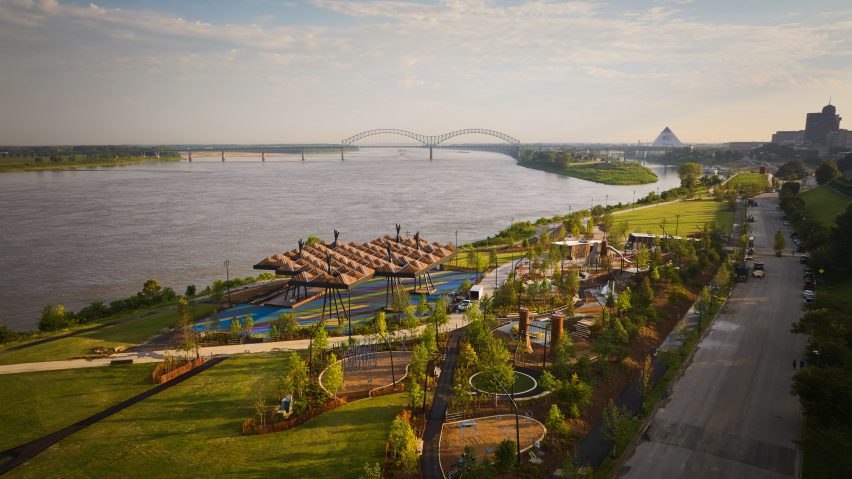
Studio Gang and SCAPE add timber canopy to "inclusive" park on Memphis waterfront
US firms Studio Gang and SCAPE have created a public park alongside the Mississippi River in Memphis that features a mass-timber shade structure and an installation by artist Theaster Gates.
Officially called Day One at Tom Lee Park, the park comprises 31 acres of land along the river, with walking paths, fields, river terraces and a large activities area sheltered under a massive glulam canopy.
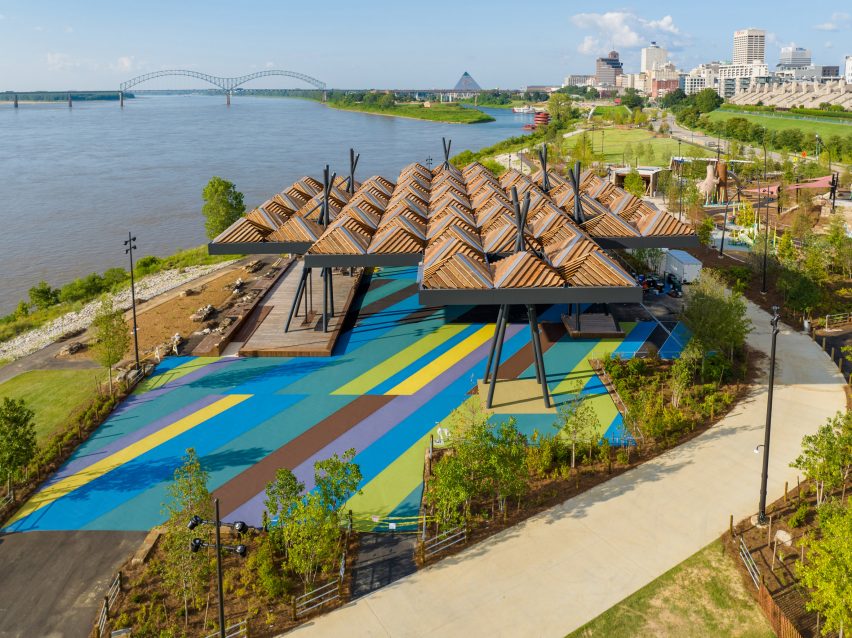
Chicago-based architecture practice Studio Gang designed the masterplan for the park, while SCAPE carried out the landscaping, which included the remediation of the soil and the planting of more than a thousand trees.
Running six miles along the waterfront, the park is meant to reconnect the city to the water and provide a "model for inclusive public space making", according to Memphis River Parks Partnership (MRRP), the non-profit that oversees Tom Lee Park.
"Tom Lee Park is adjacent to a crescent of disinvested neighborhoods that have only gotten poorer in the last 50 years – including the lowest-income zip code in Tennessee," said MRRP.
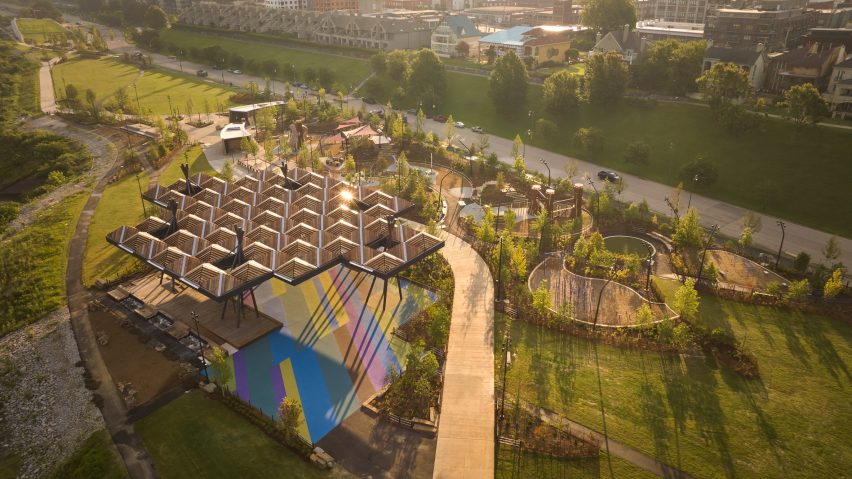
The remodelled park was centred around what the team calls the Active Core, which features a 16,000-square-foot shade structure made out of glued-laminated timber (glulam).
Named in memory Tyre Nichols, a Black man killed by police earlier this year, the Sunset Canopy is supported by six steel columns and features "louvered roof monitors". The name refers to Nichol's reported hobby of photographing sunsets.
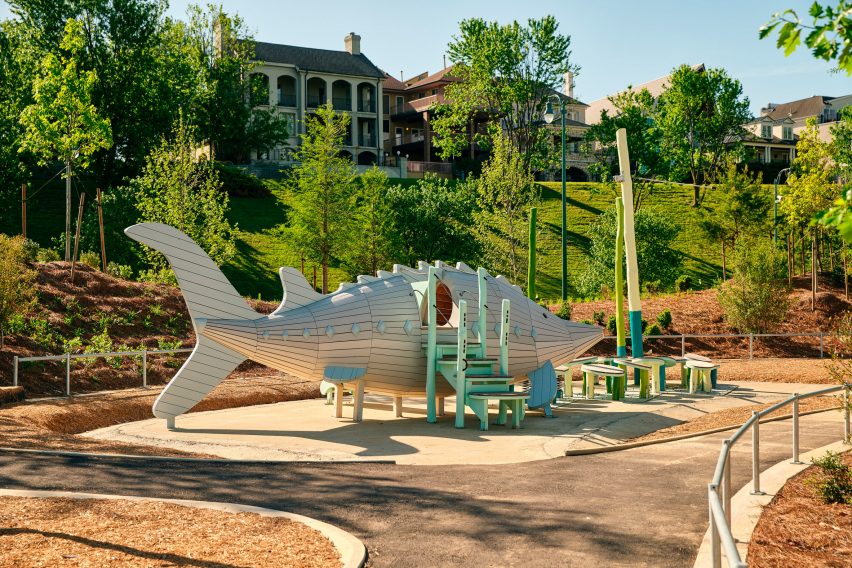
The canopy covers a basketball court with a surface designed by artist James Little, who was born in Memphis.
An entrance called the Civic Gateway provides access from the city and features what the team claims is the nation's first "the first ADA-compliant crossing to the river’s edge" via a switchback pathway that leads down a series of bluffs.

Adjacent to the path are a series of groves and fields for recreation and gathering as well as a series of misters to keep guests cool during the hot Memphis summers.
In a forested area, an installation by artist Theaster Gates called A Monument to Listening includes an array of rounded, black chairs set on top of a square of pavement.
The installation, as well as an adjacent sculpture created by artist David Allan Clark in 2006, were dedicated to the park's namesake, Tom Lee, a Black river worker who allegedly swam to save dozens of people who were drowning in the river after a boat sank in 1925.
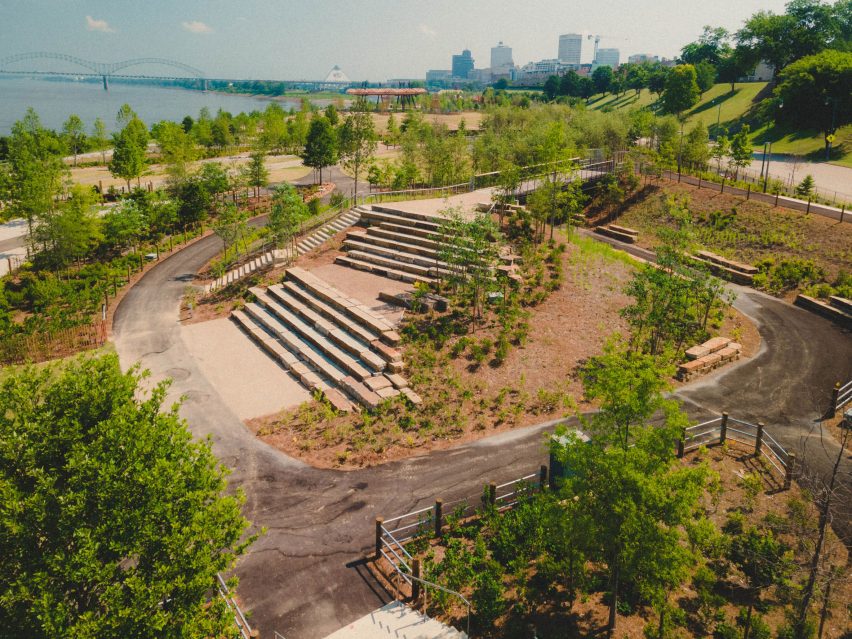
Denmark-based playground designer Monstrum installed a "river-themed" play area, designed in collaboration with SCAPE near the Sunset Canopy.
Arrayed near the playground are a series of timber pavilions that according to the team are passively cooled and will be the site for concessions.
On the water, SCAPE and Studio Gang installed a series of terraces that allow onlookers to view the river and the restored intermediary foilage between the river and the park.
A series of structures were placed on these terraces, including a classroom and a pollinator lab, where visitors on a wooden platform can view the "native pollinator meadow close to the river's edge".
The park embarked on the redevelopment five years ago, bringing on a number of sponsors, and according to Studio Gang, a number of community members were consulted.
The present boundaries of the park were formed in the 1990s, when it was expanded by the Army Corps of Engineers, and has served as a site for local festivals. However, advocates for the project said that the park had fallen into disarray in recent years, mirroring a decades-long economic slump in Memphis.
"Like many American cities, Memphis turned its back on the waterfront as it grew during the second half of the 20th century," said MRRP.
"For a long time, Tom Lee Park was an unremarkable swath of turf – even used, at one point, as a city dump."
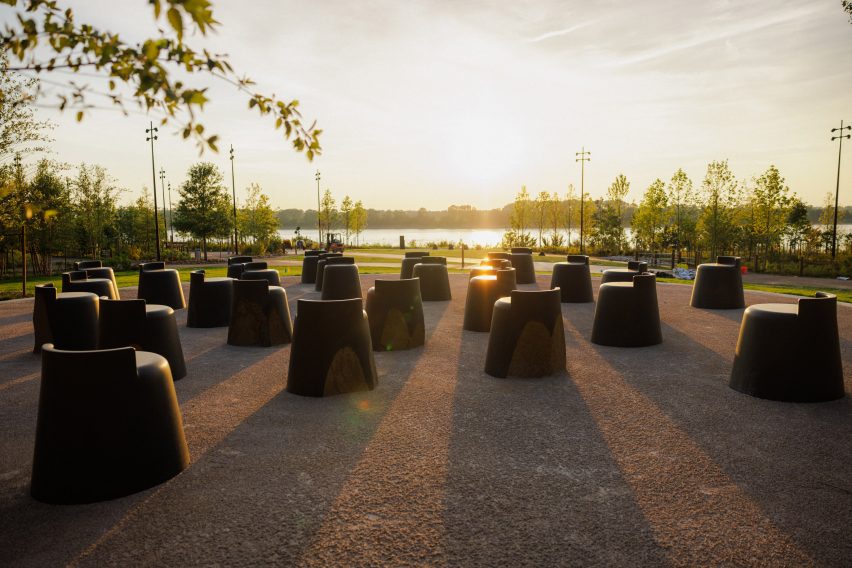
Other projects redeveloping the waterfront in Memphis include an art museum by Swiss studio Herzog & de Meuron. North, in Cleveland, the owner of the city's professional basketball team, the Cavaliers, has begun redevelopment of that city's waterfront.
The photography is by Tom Harris unless stated otherwise.